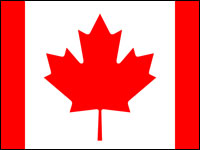
Since its conception in 1996, Google’s search engine has played a key role in redefining not only the role of the Internet, but also the accessibility of the Internet to the end-user. This characteristic can be further exemplified by the company’s unofficial slogan “to organize the world’s information and make it universally accessible and useful.”
Beyond the unofficial slogan, Google has become the world’s most-used search engine on the Internet, indexing billions of Web sites. In 2000, Google began selling advertisements associated with search keywords. However, the manner in which these advertisements are triggered has led to numerous controversies, and the company has been the subject of constant litigation, particularly in the arena of trademark law.
Specifically, Google’s AdWords program allows advertisers to purchase terms or keywords, which may include registered or common law trademarks of competitors. When a search term is entered, the terms or keywords trigger the appearance of the advertiser’s ad and a link to the advertiser’s Web site on the search page. Advertisers pay Google based on the number of times Internet users click on the advertisement, thus visiting the advertiser’s Web site. Google’s AdWords works in conjunction with the Keyword Suggestion Tool, a program that recommends terms or keywords for advertisers to purchase. The suggestions could include trademark-protected terms or keywords.
‘Use in Commerce’
The AdWords program has proven to be the catalyst behind several lawsuits launched against Google. One such lawsuit was launched by Rescuecom in 2007 for trademark infringement, false designation of origin, and dilution under the Lanham Act, 15 U.S.C. 1114 & 1125.
Rescuecom is a computer service franchising company that provides on-site compute services and sales. In terms of Internet presence, Rescuecom conducts a substantial portion of its business over the Internet, receiving between 17,000 and 30,000 visitors each month to its Web site. In addition, Rescuecom took its intellectual property quite seriously, and sought and received federal registration for its trademark “Rescuecom” in 1998.
Similarly, many of Rescuecom’s competitors advertise on the Internet. To wit, these competitors were interested in arranging for advertising with Google. Using Google’s Keyword Suggestion Tool, these competitors were advised to purchase Rescuecom’s trademark. This created the unfavorable situation wherein an Internet user wishing to be connected to Rescuecom’s Web site would commence a Google search for the term “Rescuecom” and would subsequently be directed to a search results page that would be replete with competitors’ advertisements and links to competitors’ Web sites. Rescuecom alleged that this created a likelihood of consumer confusion.
Initially, the United States District Court for the Northern District of New York dismissed Rescuecom’s action against Google for failure to state a claim for relief, on the grounds that Rescuecom failed to allege that Google’s use of its mark was a “use in commerce” within the meaning of 45 of the Lanham Act:
- (1) The term “use in commerce” means the bona fide use of a mark in the ordinary course of trade, and not made merely to reserve a right in a mark. For purposes of this Act, a mark shall be deemed to be in use in commerce on goods when
- (A) it is placed in any manner on the goods or their containers or the displays associated therewith or on the tags or labels affixed thereto, or if the nature of the goods makes such placement impracticable, then on documents associated with the goods or their sale, and
(B) the goods are sold or transported in commerce, and
(2) on services when it is used or displayed in the sale or advertising of services and the services are rendered in commerce, or the services are rendered in more than one State or in the United States and a foreign country and the person rendering the services is engaged in commerce in connection with the services.
Google Adds Fuel to Fire
The Court held that Google did not “use” Rescuecom’s trademark in commerce, which is an essential element of an action under the Lanham Act. The District Court explained that even if Google used Rescuecom’s mark in a manner likely to cause consumer confusion or deceive searchers into believing that competitors of Rescuecom are affiliated with Rescuecom, Google’s actions are not a “use in commerce” under the Lanham Act because the competitor’s advertisements triggered by Google’s programs did not exhibit Rescuecom’s trademark.
Rescuecom successively appealed, and the United States Court of Appeals for the Second Circuit vacated the lower District Court’s ruling. However, the Court of Appeals did not rule on the merits of the case, and instead held that these issues should be remanded for further proceedings to the District Court.
To add to the tension between Google and trademark owners, Google has recently lifted its restrictions on the use of trademarked terms in its online advertising system. This new policy will allow businesses to place trademarked terms directly in the copy of text advertisements without seeking permission from the trademarked owners.
Previously, Google required that advertisers either own the trademarks used in their ads or have explicit permission from a third-party trademark owner before its marks could appear in the advertisements. Google compared the old policy as equivalent to a “supermarket promotion in a Sunday newspaper that only listed generic products like ‘discount cola’ instead of the actual products for sale.”
With its latest move, Google — already under fire by brand owners for permitting the purchase by advertisers of search terms that are trademark protected — will assuredly further exacerbate relations with trademark holders who perceive that their rights have been infringed.
C. Donald Brown is an intellectual property lawyer at Heydary Hamilton. His practice includes patents, trademarks, copyrights and industrial designs, as well as IT matters.






















































Social Media
See all Social Media